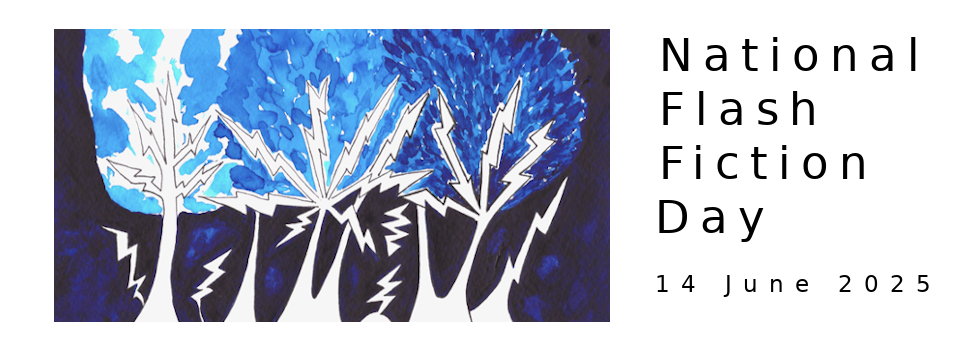I am guilty of taking myself too seriously. Not to a crazy degree but just to the point of over thinking things a little too often. Over the last couple of years I have been writing short stories almost daily. I have figured out my style, the way I like to write and the things I like to write about and it is working. As a result however a few months ago I found that almost all of the stories I have written recently are of a similar length and invariably centred on a group of fictional friends.
This was not a problem, in fact it was an aim. I had fallen in love with this group of characters and I wanted to write a collection for them to live in. The problem was that every story I wrote was about them and between two and five thousand words. If I had an idea for a story that none of my characters fit in with, or was really short, I would pop it in my notebook and forget about it. I had to be focussed if I was going to get this collection done. Writing took discipline. I’d been told that a thousand times.
But, if there is one thing I have learnt over the years of writing, and receiving advice about writing, is that you should never close your mind to new ideas. I had been ignoring this advice and it lead to what I guess was writers block.
After a few weeks of frustration editing, trying desperately to believe that I was still writing, I decided to go back to my roots.
One of the first stories I had published was a flash-fiction called Movies and Stories From Friends. It was a six sentences long musing about a girl loosing her virginity at a party. I remember writing it in about two minutes; I then spent two months editing it but the feeling that remains is those two minutes. That flash of going from inspiration to finished story in less time that it takes to brew a cup of tea. I wanted that back.
So I put all my current stories to one side and cleared my head of those character names and their voices. I thought I’d try to write a couple of flash-fiction stories. I emptied my brain and waited for it to fill up with new stuff.
It worked. Without constantly thinking about my story collection or the characters who lived in it and focussing solely on trying to write something flash length, I managed to write three flash fictions a day for a month and a half.
I wrote stories about self-service check outs with attitudes, voodoo cigarettes, pre-apocalyptic imaginary zombies, vengeful guitar strings and a tonic that can turn humans into chameleons. Nothing I had ever written before prepared me for these stories, or even hinted that I might some day write stories like this. It was the most incredible creative burst I have had in a long time.
This burst was prolonged by one of my current undertakings: the National Flash-Fiction Day project Flashpoints. I’m one of a small team consisting of myself, Emily Cleaver and Rachael Dunlop, under the captain and champion of all flash-fiction endeavours Calum Kerr. Together we’ve been working on this project that we have dubbed “a site-specific mass writing event.”
Flashpoints is for everyone, wherever you are in the world. This is not a lit mag or blog in the traditional sense; it is a completely open writing project to celebrate the joys of flash-fiction. Anyone can get involved.
At Flashpoints we encourage people to get out in the world, writing flash-fiction rooted in their surroundings. We ask them to write stories on a single page, photograph where they are and send it all in to us at nffdflashpoints@gmail.com. Some contributors have even left their stories in the wild for strangers to find, all in the name of flash-fiction celebration. We ask them to push themselves, write a story in one burst, squelching the desire to edit. We feature every story we receive and there is no limit to how many times a writer can contribute, the more the better.
Seeing what people do with the form has been wonderful for my writing, boosting my own creativity. People have written on scraps of paper and coffee shop napkins, in play parks and underground trains. The variety of submissions and experimentation has truly been wonderful to see. Flash-fiction is a delicate art. It takes a lot of discipline and effort but it does allow complete freedom for your imagination. There is nothing you can’t do in a flash fiction. That is why I love it.
Writing Flash-Fiction has warded off my writers block and my frustration. Above all though, it has made writing fun again. I’m never quite sure what I’m going to write next.
You can see all the stories to date for some inspiration and more information about the project on our blog over at http://nffdflashpoints.blogspot.co.uk
[And you can read all about Alex, and some of his stories, over on his own blog at http://alexthornber.wordpress.com/]
